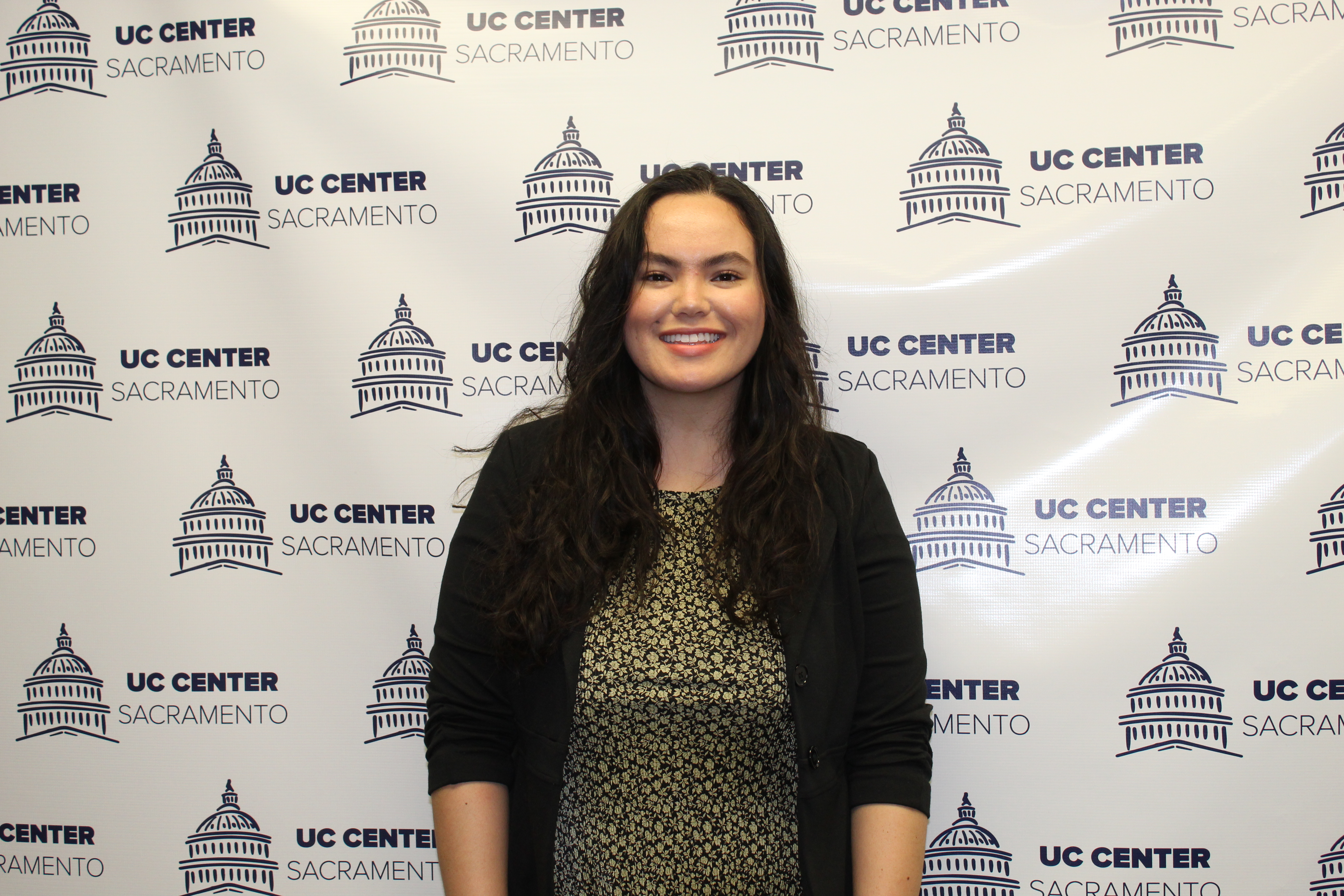Environmental Justice at UC Center Sacramento
Environmental Justice at UC Center Sacramento
By Althea Knapp
UCCS is a semester/quarter long program for undergraduate Junior and Senior standing students at any University of California campus with any major. I had the opportunity to interview Sophie O’Meara, a UCSC Anthropology recent graduate about her experience in this program.
Q1: What or who inspired you to participate in UCCS?
I was originally interested in applying for UCDC, but that wasn't an option for UCSC students over this past summer when I was looking to go (I don't really remember the logistics of why this was the case). Then I found out about UCCS at a career fair during winter quarter and thought that this would be a great alternative, because it was in-state, while still providing a lot of the same opportunities as UCDC. I also liked that it was a smaller program, so it was easy to work directly with our professors and each other.
Q2: Can you tell me a little bit about how UCCS works and your experience? When were you there (in terms of quarter/ academic year)
I was in the UCCS Summer 2019 Cohort. This was apparently the biggest group the program has ever had, with about 60 students (prior years have been less than 20). Basically UCCS is a quarter long (slightly shortened for me, because it was summer) public policy internship program. Students work about 20 hours per week at an internship (totaling at least 200 hours), along with taking two public policy courses. One class was sort of an overview of how policy works; it was mostly focused on California policy, but it did touch on national policy/ policy in general. The other class was on research methods- how to design a policy research project, conducting surveys, sampling, etc. Students complete a policy research project, consisting of a research paper and a poster presentation. At the end of the quarter, students present at a UCCS research showcase. Many students, including myself, choose projects related to their internships. This is great because your internship supervisor can provide a lot more personalized resources/access to data than the professors can.
Q3: What was it like participating in UCCS from an anthropological perspective? Were there many other anthropology students participating?
Besides myself, there was only one other anthropology major in the cohort. Most people were poli sci/legal studies majors. I thought it was really interesting to hear data/research being presented in such a different way than I was used to in anthropology courses. Policy research tends to be more quantitative- data is presented through statistics, based on specific models, to make quantifiable predictions/show trends in data. Anthropology, as we know, is more qualitative- we like to look at how different structures, groups, relationships fit into the bigger picture. By asking questions in a different way, we can yield a more robust understanding of any given topic. Combining these different ways of thinking was a really good challenge for me because it allowed me to broaden my perspective on how I think about political structures and processes, while also gaining a deeper understanding of how policy works.
Q4: Were you able to do any internships or volunteer work?
I interned at CalRecycle's Environmental Justice Program. As a double major in Anthropology and Environmental Studies, I thought this was a great fit for me. I got to work with a small team of people who are all really passionate about environmental justice, most of whom volunteer on EJ projects in addition to their regular jobs at CalRecycle. The focus of my internship was to build up a grants program for community composting and gardening in Disadvantaged Communities. For this, I did a lot of research on the benefits of community gardening for individuals and communities, as well as the environmental benefits of community composting.
Q5: What was your favorite part of your experience?
One part of my project was to get expert opinions about the benefits of community gardening. For this, a few of my team members and I got to visit a community garden in Oakland, called Planting Justice, and interview one of their founders. This garden is located in one of the most low-income neighborhoods in Oakland and provides fresh produce to its residents who may not have had access otherwise. They also provide living-wage jobs to formerly incarcerated folks and emphasize sustainable agricultural practices. This was definitely my favorite experience during my internship, because I got to see first-hand all of the benefits this community garden has had on the community.
Q6: What skills did you take away from your experience?
UCCS taught me to utilize different ways of thinking and combine different research methods to gain a better understanding of how policy works. More than that, my internship taught me that patience and a willingness to endure pushback and criticism are absolutely essential, especially in environmental justice.
Q7: What would you say to an anthropology student interested in participating in UCCS?
I think UCCS is a great opportunity for anthropology students who are interested in politics/policy. As anthropology students, we are trained to think about who and what affects and is affected by politics and policies, especially those that are typically left out. Although UCCS may not seem directly applicable to anthropology, I think that this in itself presents a unique opportunity for us to bring an anthropological perspective to the program.
By Althea Knapp. Althea is a lead peer adviser with the Department of Anthropology.

